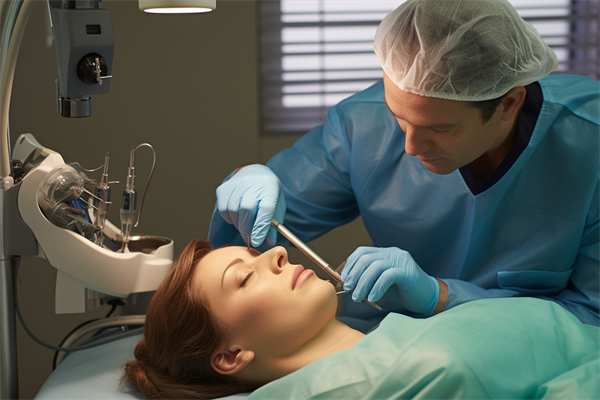Can the ophthalmology department in Guangzhou be reimbursed?
As one of the largest cities in southern China, Guangzhou has many first-class medical institutions and eye hospitals. For patients, it is one of the important information to know whether the ophthalmology department of the hospital in Guangzhou can be reimbursed. The following will elaborate on whether the hospital ophthalmology department in Guangzhou can be reimbursed from four aspects: medical insurance policy, hospital level, disease scope and related reimbursement process.

1. Medical insurance policy
According to the medical insurance policy of Guangzhou, Guangzhou residents can reimburse part of the ophthalmic treatment expenses through medical insurance. The specific reimbursement proportion and scope will vary according to individual insurance participation and policy changes. Generally speaking, the medical insurance in Guangzhou can reimburse the treatment costs of common eye diseases, such as myopia surgery, glaucoma surgery, cataract surgery, etc. However, some cosmetic ophthalmic operations, such as nose augmentation and double eyelid surgery, are usually not included in the reimbursement scope.
To find out whether you are eligible for reimbursement, you'd better consult the local social security bureau or the medical insurance department of your unit to learn more about the relevant policies and reimbursement process.
2. Hospital level
There are many kinds of ophthalmology in hospitals in Guangzhou, from Grade A hospitals to community hospitals, there are ophthalmology clinics. Generally speaking, the ophthalmic equipment and professional level of the tertiary hospitals are higher, and the treatment effect is more guaranteed. At the same time, the third class hospitals are also within the scope of medical insurance and can reimburse some expenses. For those patients who choose to seek medical treatment nearby or whose condition is not too serious, the ophthalmic clinic of the community hospital can also provide basic examination and treatment, but may not be reimbursed.
Therefore, when choosing a hospital, patients should not only consider the level and reputation of the hospital, but also understand the medical insurance policy to ensure that they can enjoy reimbursement treatment.
3. Disease scope
The medical insurance in Guangzhou has specific requirements for the reimbursement of eye diseases. Generally speaking, common ophthalmic diseases such as myopia, hyperopia, astigmatism, amblyopia, etc. are within the scope of reimbursement. Some diseases requiring surgical treatment, such as cataract, glaucoma, strabismus, etc., can also be reimbursed for part of the treatment costs. However, for purely cosmetic operations, such as nose augmentation and eyelash planting, medical insurance usually does not reimburse.
Therefore, if the patient needs ophthalmic surgery or other special items, it is better to consult the medical insurance department before seeing the doctor to confirm whether the disease is within the scope of reimbursement.
4. Relevant reimbursement process
If the patient determines that his/her eye disease can be reimbursed, he/she needs to know the relevant reimbursement process and material requirements. Generally speaking, patients can apply for reimbursement according to the following steps:
(1) Medical treatment: choose an appropriate hospital ophthalmic clinic to diagnose the disease.
(2) Payment: Pay the fees at the eye department window of the hospital, and obtain receipts and fee details.
(3) Preparation of reimbursement materials: prepare relevant reimbursement materials, such as inpatient medical records and expense bills, according to the requirements of the hospital and medical insurance department.
(4) Reimbursement application: submit the prepared materials to the medical insurance department and fill in the reimbursement application form.
(5) Reimbursement settlement: after the medical insurance department has approved the reimbursement, the reimbursement will be directly transferred to the patient's personal medical insurance account.
It should be noted that different hospitals and different medical insurance departments may have slightly different reimbursement requirements and processes, and patients need to consult and understand specific requirements in a timely manner.
Summary
Eye treatment in hospitals in Guangzhou is generally reimbursable, but the specific reimbursement proportion and scope need to be determined according to individual insurance participation and policy changes. Understanding the medical insurance policy, hospital level, disease scope and related reimbursement process is of great significance for patients to select the appropriate hospital and understand their reimbursement rights. Before seeing a doctor, it is better to consult the medical insurance department or communicate with the hospital to ensure that you can enjoy the due reimbursement treatment.




















